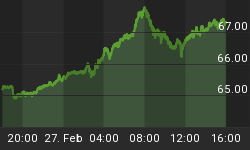The worldwide implications for nuclear power advocates in light of the 11 March disaster at Japan's Daichi Fukushima nuclear complex, battered first by an earthquake and a subsequent tsunami, are slowly unfolding.
Nations committed to nuclear power are being subjected to a relentless PR barrage by nuclear construction firms, who stand to lose billions if current contracts are suspended or, even worse, cancelled.
Despite the bland reassurances of the nuclear power industry that "it can't happen here," in Europe, Italy has canceled plans to construct nuclear reactors, while Germany's Bundestag last month passed a resolution to close all 17 of the nation's nuclear power plants. Seven NPP plants were immediately shuttered with the remainder to be passed out by 2022.
So, where to go for the juice?
Shifting gears since the beginning of the year, a trend accelerated by Japan's Fukushima debacle, in a statement released by the German Association of Energy and Water Industries (BDEW), commenting on renewable energy input to the country's national grid since January, "Renewable energies have crossed the 20 percent mark in Germany for the first time." Last year, Germany's green energy consumption totaled 18.3 percent of total demand.
Following Fukushima, German Chancellor Angela Merkel said that her government's goal was to draw 35 percent of production from renewable energy sources by 2022. While Germany's total energy consumption remained stable at 2010 levels of 275.5 billion kilowatt-hours, energy from sources like wind, biomass, hydroelectric plants, solar panels and waste incineration rose to 57.3 billion kilowatt-hours in the first six months of 2011.
Wind power, Germany's most important renewable energy source at present, rose to 20.7 billion kilowatt-hours of total usage, with biomass contributing 5.6 percent, solar 3.5 percent and hydroelectric power a modest 3.3 percent.
Germany's new energy policies will depend on the installation of new renewable power capacities with an amendment to the Renewable Energies Act stipulating the doubling of the nation's share of green power to 35 percent minimum no later than 2020 with an especial emphasis on offshore wind farms.
While these figures are still modest, they conceal an immense but simple truth.
One of the world's most advanced economies has reviewed its commitment to nuclear energy, which accounted for 23 percent of national electricity consumption, and decided to abandon it, a not insignificant commitment, as its first NPP came online in 1969.
Even more extraordinary, the decision was made not on the basis of an in-country disaster, but watching the experience of others. As Japan is one of the world's leading technological states and yet was subjected to the Fukushima disaster, Berlin obviously concluded that engineering cannot factor out every natural random event. Like Japan, Germany is a densely populated state, and a nuclear incident and its attendant debris was obviously adjudged as not worth the risk.
Looking at the transition not as a debacle but an opportunity, Chancellor Merkel said that the closure of Germany's NNP installations, previously scheduled to be shuttered as late as 2036, would give Germany a competitive advantage in the development of renewable energy, commenting, "As the first big industrialized nation, we can achieve such a transformation toward efficient and renewable energies, with all the opportunities that brings for exports, developing new technologies and jobs."
The consequences of Fukushima on the world's multi-trillion dollar civilian nuclear energy industry have yet to play out. But some broad issue outlines are becoming clear.
While Germany's prosperity is unmatched in Europe, which allows it to pursue other energy alternatives, other EU nations will undoubtedly be more circumspect in reviewing their nuclear programs.
Given the German decision however, it seems likely that nuclear energy companies will redouble their efforts in developing countries short of energy, including Turkey, Lithuania, Bulgaria, China and India, trotting out the usual panaceas about zero greenhouse gas emissions, reactor redesign, etc. etc. etc.
Energy deficit countries will be faced with tough calls - build a nuclear plant in 2-3 years and resolve some energy issues, or await Germany's transition to alternatives.
Much is riding on Berlin's efforts, but what the future will look like is anyone's guess, and the global nuclear lobby is most unlikely to go quietly into that gentle night.
By. John C.K. Daly of Oil Price















